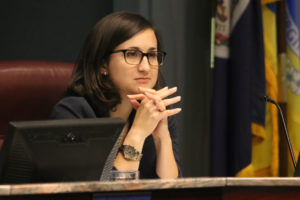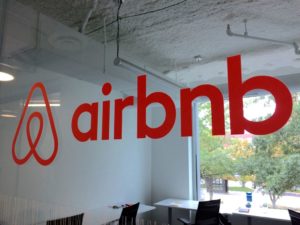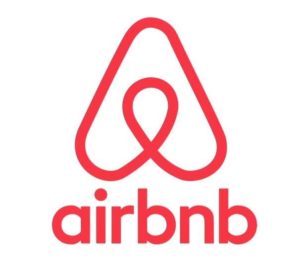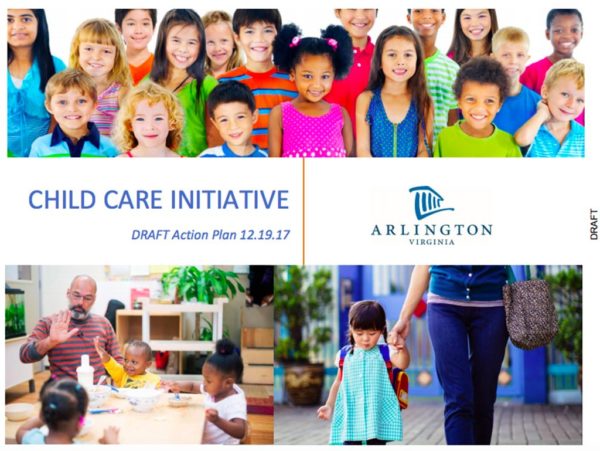Arlington County officials are seeking the public’s input on how to improve the accessibility and quality of childcare at a community meeting on Thursday.
The meeting is part of the county’s Child Care Initiative, which aims to promote the development of an inclusive, integrated child care system that serves Arlington County families, especially vulnerable populations.
A draft action plan created in December outlined ways to make childcare more accessible for all income levels. Recommendations included creating a financial assistance program to help families defray childcare costs and updating the county’s zoning ordinance to create more facilities.
At the meeting, officials will hear feedback before the draft plan heads to a county workgroup. Attendees will circulate through different stations to provide written and oral feedback. At one station, attendees can also give first-hand, personal accounts of their experiences with childcare.
The meeting will take place at the Central Library (1015 N. Quincy Street) from 5:30-8:30 p.m. Registration is requested online.
Caitlin Hutchinson, an assistant director with the county’s Dept. of Human Services said Arlington County has a unique opportunity to enact policy changes that drive meaningful progress.
“We’re one of the few jurisdictions in the state in that we can enact our own child care code. We really have an opportunity to think about what we want to look like as a community,” she said.
In March, a 22-member Leadership Roundtable will review the revised action plan. A final plan is expected to come before the county manager and board in April. Implementation of recommendations will begin in late spring, county staff said.
The plan highlighted “significant gaps between supply and demand” for childcare. There are only 6,984 licensed spaces available for children in daycare facilities, but more than double the number of children under the age of five in the county.
Arlington County Board Chair Katie Cristol said the child care initiative is one of her top priorities this year. In a Jan. 2 speech, Cristol said policy changes are necessary to make childcare more accessible and affordable for Arlington County residents.
“I anticipate that some long-awaited steps will be before the Board soon, such as a potential re-examination of our local codes for alignment with the Commonwealth’s; potential zoning changes to increase the availability of affordable places for, and decrease barriers to entry of, childcare centers; and new partnerships to increase the supply of trained childcare workers,” she said.
In addition to attending the meeting, community members can share feedback by Feb. 2 in the following ways:
- Submit input through the CiviComment online tool
- Send email to [email protected] or call 703-228-1380
- Send mail to CCI, 2100 Washington Blvd. — 4th Floor, Arlington VA 22204
A draft action plan on child care in Arlington County has found that it must be more accessible to all income levels, have more spaces available and have better quality and safety for all.
Among other things, it suggested developing a financial assistance program to help families defray childcare costs, updating the county’s zoning ordinance to encourage more facilities and supporting more professional development for child care providers.
The plan found that there are 6,984 licensed spaces available for children in daycare facilities, but 13,435 children under the age of 5 in the county. Of those, approximately 1,400 live at or below the federal poverty level.
It also found that some areas of the county — particularly in some southern neighborhoods — are underserved right now. In the last few months, the Arlington County Board has approved a slew of new daycare facilities, with one on Lee Highway the subject of a lawsuit brought by neighbors opposed to the new facility.
“There are indications from the community that there is a significant gap between supply and demand,” the plan reads. “Challenges to starting new child care businesses and expanding existing ones have also been reported.”
The draft action plan follows a study begun this fall by county staff. Under the fiscal year 2018 budget, a full-time employee joined the Dept. of Community, Planning, Housing and Development to suggest changes to Arlington’s zoning ordinance that would help child care centers open.
Yesterday (Tuesday), the county announced the launch of its Child Care Initiative, as well as a CCI Leadership Roundtable and a CCI Work Group. The Roundtable, a collection of 22 people with knowledge of local and state regulations, will meet each quarter, while the Work Group will meet each month. Both will look to refine the plan ahead of County Board approval in the future.
County staff will host a kick-off meeting for the initiative on January 25 at Arlington Central Library (1015 N. Quincy Street) from 5:30-8:30 p.m.
“We’re looking forward to opening the doors for a community conversation about how to achieve our goal of a childcare system that effectively serves and supports all Arlington County families. This draft action plan offers specific ideas and concrete steps to meet that goal,” County Board vice chair Katie Cristol said in a statement. “We’re inviting everyone in to give feedback and help fine-tune this action plan, and to be part of the solution to the childcare challenge facing our families and local economy.”
Community members can share feedback in the following ways:
- Submit input through the CiviComment online tool
- Send email to [email protected] or call 703-228-1380
- Send mail to CCI, 2100 Washington Blvd. — 4th Floor, Arlington VA 22204
- Attend the January 25 community meeting at Central Library
The Arlington County Board nixed a plan for a huge Lyon Park mansion to be used as a bed and breakfast at its meeting Saturday (September 16).
On a 3-2 vote, the Board denied a proposal for the home at 3120 N. Pershing Drive to operate as a bed and breakfast with at most five guest rooms, with some of those to operate as suites using more than one bedroom. The 13,700-square-foot house contains nine bedrooms, and would have been the county’s first bed and breakfast.
Board member John Vihstadt joined chair Jay Fisette and vice chair Katie Cristol in voting against the plan. Christian Dorsey and Libby Garvey voted for it.
“One of the bottom lines here for me is you have an exceptionally large house… and now it has the potential to provide exceptionally large disruption depending upon what the Board does and either way, how it is managed in the neighborhood,” County Board chair Jay Fisette said.
But the door is still open for property owners Yogi and Daisy Dumera to have their home as a short-term Airbnb rental, which has laxer rules on operation.
Under the Airbnb regulations, a total of six people could stay in the home at one time, or two per bedroom, whichever is most. An Airbnb rental does not require any off-street parking, unlike a bed and breakfast, and would only be inspected by code enforcement after a complaint.
Garvey said given the stricter enforcement on operating bed and breakfasts, she was inclined to support the plan as it could protect the neighborhood more.
“I think, in the long run, it’ll be better for the neighborhood to have more controls and regulations to stay within the parameters of that neighborhood to make it a B&B,” she said. “If we don’t make it a bed and breakfast, I suspect it’ll go the Airbnb route and make things more difficult for the neighborhood.”
The bed and breakfast plan came in for criticism at the Board’s meeting during public testimony. Local resident Harlan Hadley bemoaned the home’s potential conversion into a “quasi-commercial business,” especially because of traffic impacts.
And in a letter to the Board, the Lyon Park Citizens Association said allowing a business in a home would damage the residential neighborhood and possibly encourage similar uses from others.
“Residents opposed the conversion of a residential property in the heart of a residential area into a commercial site,” the association’s executive committee wrote. “The Association believes that this could set a deleterious precedent and could lead to many more sites being developed and reclassified in ways that would erode the quality of our neighborhood.”
The plan followed Dumera’s efforts to sell the house for several years. Records show he dropped the asking price well under the property’s $4 million assessed value, but took the home off the market after not finding a buyer. The property was criticized by neighbors for its ostentatiousness when it was built a decade ago.
Fisette said the bed and breakfast plan appeared to be a “last effort” by the owners to recoup their investment after being unsuccessful in their efforts to sell or auction the house.
Photo No. 1 via Zillow
 After hearing from residents and prospective providers, Arlington will formally explore ways to add child care options in the county.
After hearing from residents and prospective providers, Arlington will formally explore ways to add child care options in the county.
Under the recently-approved fiscal year 2018 budget, a full-time employee will join the Dept. of Community, Planning, Housing and Development to suggest changes to Arlington’s zoning ordinance that would help child care centers open.
The County Board also directed $50,000 be spent on an independent study to determine gaps in child care offerings by age and location.
County Board vice chair Katie Cristol, an advocate for more child care options in Arlington, said zoning ordinance tweaks could be key in adding more centers.
“I am strongly of the opinion, having formed it from talking to a lot of providers or would-be providers, that our biggest obstacles are within the zoning ordinance in terms of the number of parking spaces required by childcare centers or the amount of indoor vs. outdoor space,” Cristol said. “It makes it very hard to find a space for rent in Arlington County that will actually meet the requirements.”
Cristol said the independent study, done in parallel to any work tweaking the zoning ordinance, should give more data on where the gaps in the market lie. WTOP reported in February that children outnumbered daycare and preschool openings by a ratio of roughly three-to-one in 2015.
“There are some things we know and there are some things that we don’t know, so we want to get a little bit more specific about where the geographic areas are where childcare is most lacking,” Cristol said. “We have some hypotheses about that but not as much data.”
The county’s child care ordinance could also be in for another examination, especially in light of Virginia’s statewide regulations not being revised upwards. Cristol said she had been hopeful of the Virginia Department of Social Services revamping its regulations around child care centers, and improving standards that she said could be “almost criminally low.”
Last year, Arlington dropped a proposed update to its own child care regulations after several County Board members, Cristol included, slammed the inclusion of certain controversial provisions, which were seen as overly-prescriptive. Cristol was also critical of adding to the regulatory burden of small daycare providers without a clear health or safety imperative.
State officials decided at the end of last year to leave Virginia’s regulations alone, and while Cristol said Arlington’s continue to be tougher, a fresh look led by the county’s Child Care Licensing Office could help.
“I think after the version you saw in early 2016, which was roundly understood and emphasized by myself and other Board members to be a huge overreach, there are opportunities to look afresh at what are the high expectations that we have and want to communicate, and what do we actually require as a condition of opening a childcare center,” Cristol said.
The study will begin sometime after the start of the fiscal year, on July 1, while Cristol said she anticipated any zoning ordinances changes will come before the community and County Board in around 18 months.
Airbnb Reg Changes Proposed — The Arlington County Board is considering more updates to its new Airbnb regulations. The Board on Saturday is expected to advertise two potential changes: first, eliminate the loophole that allowed Airbnb hosts to get out of paying hotel taxes if they host fewer than four guests at a time. Second, set a $60 annual fee for the permits required to be an Airbnb (or VRBO, HomeAway, etc.) host in Arlington. [Arlington County, Arlington County]
Letter: Short-Term Rentals Pose Risks — A pair of letter to the editor writers in the Sun Gazette argue that allowing Airbnb and other short-term rental services in Arlington involves major risks to safety and the potential for abuse of affordable housing. [InsideNova]
Meeting to Discuss Proposed VRE Fare Hike — A meeting will be held March 7 in Crystal City to discuss a proposed 3 percent fare hike for Virginia Railway Express. [WTOP]
FBR to Be Acquired — Rosslyn-based investment bank FBR is being acquired by Los Angeles-based B. Riley Financial Inc. for $160.1 million in cash and stock. FBR’s chairman and chief executive will become CEO of the combined company. [InvestmentNews, Washington Business Journal]
Wakefield B-Ball Teams Advance — The Wakefield Warriors boys and girls basketball teams have clinched state tournament berths. [InsideNova]
Flickr pool photo by Erinn Shirley
 It’s no secret that child care services are hard to come by in Arlington.
It’s no secret that child care services are hard to come by in Arlington.
Locals who want to put their kids in preschool or daycare programs might have to wait for months before an opening appears. At Early Steps Bilingual Preschool in Lyon Village, the wait list for the upcoming 2017-18 school year is between 20 and 30 names long. And that’s fairly average, according to the preschool’s director, Michelle Clark.
“I have many parents who come to me before they have given birth who put their children on the wait list,” she said. “When parents ask me what the probability is of getting in, I tell them it’s kind of a strange science.”
What’s the problem? For one, says Arlington County Board vice chair Katie Cristol, there’s just too many kids and not enough daycare facilities. Cristol, who won her seat in 2015 after running on a policy platform that included child care, has long spoken out about the lack of affordable options in the county.
“Arlington has a child care supply problem, resulting, at least in part, from high commercial rents and growth in demand,” Cristol said.
The number of kids in Arlington vastly exceeds local availability. As WTOP reported this month, children outnumbered daycare and preschool openings by a ratio of roughly three-to-one in 2015.
 But the supply problem isn’t only frustrating parents. In Cristol’s view, not having enough child care options can hurt the county’s prospects attracting and retaining young workers who either have a family or want to start one soon.
But the supply problem isn’t only frustrating parents. In Cristol’s view, not having enough child care options can hurt the county’s prospects attracting and retaining young workers who either have a family or want to start one soon.
“Limited childcare supply creates not only personal strain on individual families, but also a problem for Arlington’s long-term economic competitiveness,” she said. “Our highly-educated young workforce is a key selling point for new businesses and organizations to locate, or existing organizations to expand, here.
Another issue is the lack of space for providers. Tatjana Vichnevsky, who heads the Full Circle Montessori School, said she’d like the county to rework the regulations that surround opening a new child care center. Specifically, Vichnevsky said rules regarding parking and green space at a daycare need updating.
“If you’re in Arlington and you want to open a school, not only do you have the state standards, but there’s also another layer of regulations and bureaucracy,” she said. “Just finding the space is an absolute nightmare.”
Arlington’s child care ordinance, Chapter 52 of county code, was last updated in 1981 and was primarily written in the 60s. In 2013, then-County Manager Barbara Donnellan’s budget-cutting proposal to adopt Virginia’s child care regulations and eliminate three county regulators was met with widespread parent outrage. The proposal was eventually scrapped, but attempts to update Arlington’s child care regulations have also been problematic.
Last year, Arlington dropped a proposed update to its child care regulations after several County Board members, Cristol included, slammed the inclusion of certain controversial provisions. Cristol was also critical of adding to the regulatory burden of small daycare providers without a clear health or safety imperative.
Moving forward, Cristol said her goal will be to look for ways to “clear obstacles to, and support, the provision of more high-quality childcare in Arlington.”
She added that the county’s upcoming 2018 budget could be an opportunity to advance that priority.
“Strategies include more technical assistance to new providers as they locate and develop their small businesses, exploration of land use and zoning strategies to increase the number of commercial spaces available for rent by childcare providers and reduced regulatory burden while still protecting quality,” Cristol said.
Beyer Warns of Obamacare Repeal Ramifications — “The Republican plan to repeal the Affordable Care Act will have disastrous consequences for Virginia,” Rep. Don Beyer (D-Va.) said Friday, citing recent studies. “Hundreds of thousands of our neighbors will lose life-saving, affordable health coverage. The state also stands to lose as many as 100,000 jobs, $30 billion in gross state product, and $50 billion in business output. This is unacceptable and irresponsible.” [House of Representatives, Commonwealth Fund]
Will Startup’s Growth Add Arlington Jobs? — Just before the new year, president-elect Donald Trump said that Rosslyn-based OneWeb will be creating 3,000 jobs as it prepares to launch hundreds of satellites to deliver broadband internet around the world. Will those jobs be coming to Arlington? An Arlington Economic Development spokeswoman said the agency was not sure, while a OneWeb spokesman told ARLnow.com only that it was opening a new office in McLean.
Op-Ed Warns ‘Ignore Arlington’s Bad Example’ — The Arlington County Board’s recently-passed home sharing regulations are a “bad example” for other Virginia localities considering similar rules, since Arlington prohibited renters from renting their homes on Airbnb and other platforms. “The opportunities created by the sharing economy shouldn’t be restricted to only those few who are deemed worthy,” says a fellow with the Mercatus Center at George Mason University, in an op-ed. [Richmond Times Dispatch]
County Board Members Take Regional Roles — “Arlington County Board Chair Jay Fisette will serve as 2017 Vice Chair of the Metropolitan Washington Council of Governments National Capital Region Transportation Planning Board. County Board Vice Chair Katie Cristol will serve as chair of the Northern Virginian Transportation Commission’s Legislative Committee, and has joined the leadership of the Virginia Railway Express Operations Board.” [Arlington County]
New Year, New Offer for New Advertisers — Join dozens of satisfied advertising clients and get your business’ message out to the greater Arlington community with ARLnow.com. Learn more about our advertising options and check out our new winter deal for new advertisers: book at least a month of advertising and get another month free. [ARLnow]
 (Updated at 11:30 a.m.) The Arlington County Board on Saturday approved regulations on Airbnb and other short-term home rentals — a move cheered by Airbnb as “fair” and “progressive.”
(Updated at 11:30 a.m.) The Arlington County Board on Saturday approved regulations on Airbnb and other short-term home rentals — a move cheered by Airbnb as “fair” and “progressive.”
Such rentals were previously prohibited by the county’s Zoning Ordinance, though that didn’t stop hundreds, if not thousands, of local residents from listing and renting their homes on Airbnb, Craigslist and other services.
Above the objections of Arlington Republicans, and a “no” vote by John Vihstadt, four of the five County Board members voted to approve regulations that legalize Airbnb rentals while enacting certain restrictions.
Among the restrictions, per a county press release:
- Short-term rentals allowed only in units used by owner as his or her primary residence at least 185 days per year
- “May host the larger of either six lodgers, or two lodgers per number of bedrooms in the unit per night (but no more than allowed by Building Code)”
- “Will not be allowed in detached accessory buildings”
- “Smoke detectors and fire extinguishers, and where applicable, carbon monoxide detectors, must be provided and accessible to all overnight lodgers”
- “Does not authorize use of the home for any other commercial use such as parties, banquets, weddings, meetings, charitable fund raising, commercial or advertising activities or any other gatherings for direct or indirect compensation”
“Like other jurisdictions, Arlington is adapting to the rise of the sharing economy,” Arlington County Board Chair Libby Garvey said in a statement. “The extensive input we received about short-term rentals throughout this engagement process was essential to help shape new regulations… Today’s decision will help promote positive and safe experiences for renters, rental owners and their neighbors.”
In response to feedback at Saturday’s meeting, next month the Board will go back and consider allowing renters, not just owners, to rent their residences on Airbnb and similar services. The Board will also reconsider a restriction it approved specifying no more than one rental contract at a time for any given residence.
Airbnb cheered what it described as “the first D.C. area municipality to pass an ordinance creating fair rules for middle class residents and families to continue sharing their homes.”
“Today, the Arlington County Board voted to protect the rights of citizens to share their home and earn extra income to make ends meet,” the company said in a statement emailed to ARLnow.com Saturday.
“Airbnb is proud to have worked with the County Board to improve the previously restrictive proposal and create smart, progressive regulations around home sharing in Arlington County,” the statement continued. “We look forward to using this ordnance as a model for shaping sensible home sharing guidelines across the Commonwealth of Virginia and the entire Washington, D.C metropolitan area.”
Earlier this year the Virginia General Assembly passed a bill legalizing Airbnb statewide, superseding any potential local restrictions, but the bill was sent for a year of further study before Gov. Terry McAuliffe considers signing it. In passing its ordinance, Arlington County beat the state to the punch.
It was partially because of the speedy process that Vihstadt said he voted no. He proposed, unsuccessfully, that the Board’s vote be deferred until January.
“I still have some serious reservations about what is before us today,” he said. “I’m still concerned that it is too rushed, I’m concerned that it overreached in several respects while leaving other issues inadequately addressed, and I believe that it fails to some degree to recognize the realities of the sharing economy where consumers are empowered as never before, which calls for I think a much more flexible, lighter hand of government.”
Board member Katie Cristol voted for the regulations, but spoke in support of allowing renters to rent their property.
“Long term renters are contributing to our neighborhood,” she said, “and should have the same opportunity to take advantage of this additional income.”
At least one resident who spoke at the meeting, however, said the regulations were not restrictive enough.
“I have serious misgivings on the legalization of short-term Airbnb-style rentals, especially the lax permitting proposals by the county,” said Charles Hughes.”People choose to live in these neighborhoods and remain because of the feelings of neighborliness. Allowing homes and neighborhoods to turn into businesses will change the nature and character of our neighborhood.”
The new regulations will take effect on Dec. 31. Homeowners will have to apply for an “accessory homestay permit,” proving that they own and reside in the property in question, though so far there is no fee associated with the permit.
 The Arlington County Board is expected to vote on proposed regulations on Airbnb and other short-term rental services at its meeting this Saturday.
The Arlington County Board is expected to vote on proposed regulations on Airbnb and other short-term rental services at its meeting this Saturday.
The regulations proposed by county staff include limits on the number of short-term renters who can stay in a given residence, depending on the number of bedrooms; it requires that the owner of a rental property use it as his or her primary residence, residing there at least 185 days of the year; and includes other provisions designed to strike a balance between those who want to generate supplemental revenue from their homes and those who don’t want to live next to a de facto hotel.
Arlington Republicans, in a press release today, said they are opposed to the regulations, which the county hustled to enact before the state legislature considers prohibiting such regulations during its January session.
The full local GOP press release is below.
Arlington GOP and Arlington Falls Church Young Republicans (AFCYRs) oppose the proposed “short-term residential rentals” regulations to be considered by the Arlington County Board this Saturday, December 10. While Arlington GOP and AFCYRs support establishing a formal legal structure for Airbnb and other short-term rentals that properly balances promoting the “sharing economy” with maintaining the character of our neighborhoods, the proposed regulations are unduly burdensome.
“Arlington County is rushing at break-neck speed to adopt regulations for Airbnb without fully understanding the impacts or gaining community consensus,” said Arlington GOP Chairman Jim Presswood.
Community Planning, Housing & Develop (CHPD) staff admitted at an Arlington County Planning Commission hearing last week that their process for developing the regulations was “atypical” and much shorter than usual. As a result, they have not done the research and community outreach that would normally be completed prior to adoption of final regulations. CPHD is using an accelerated process because they want the regulations finalized before the next Virginia General Assembly, which is expected to consider legislation on short-term rentals.
The proposed regulations prohibit renters from doing short-term rentals even if their lease allows it, restrict food service, limit the number of contracts and days that residences may be rented, and include potentially onerous parking, inspection, permitting and fee requirements. Taken as a whole, the proposed regulations threaten to push many people out of this activity.
Arlington County should be encouraging the sharing economy in a way that maintains the quality of our community. Benefits include providing residents income to help pay their mortgage or rent, creating additional short-term rental options for travelers, including visiting family members and friends, and enhancing our local economy when guests spend money at local restaurants and businesses.
“It would be a shame if Arlington undermines the future of the sharing economy while other jurisdictions move forward in this area,” said AFCYRs Chairman Andrew Loposser.
 The Arlington County Board on Saturday will consider taking a first step to enacting new regulations on Airbnb and other short-term housing rentals.
The Arlington County Board on Saturday will consider taking a first step to enacting new regulations on Airbnb and other short-term housing rentals.
County staff is proposing regulations that would permit Airbnb rentals, which currently exist in a bit of a legal gray area in Arlington, while imposing some restrictions.
Among the proposed regulations:
- Those who rent their home on Airbnb would need to apply for and obtain an “accessory
homestay permit,” which would remain valid for two years. - County inspectors would be authorized to inspect the homes of anyone with such a permit “at least one time per year,” with proper notice.
- The home being rented is required to be the owner’s primary residence, with the owner living there most days of the year.
- A cap of no more than six guests at a time in any given rental.
- The owner would not be allowed to “prepare or serve food or beverages to
any overnight guests.”
There are a total of 21 proposed regulations listed, including more mundane safety regulations like requiring working smoke and carbon monoxide detectors.`
Some of the regulations are said to be “an option” for consideration — such as requiring that owner provide at least one off-street parking space and limiting the number of short-term-rental-eligible apartments in a given multi-family building to no more than 25 percent of units.
The Board this weekend will consider advertising the proposed changes. If approved, public meetings on the regulations would be held in November, ahead of final Board consideration in December.
Nearly 1,000 properties in Arlington were listed on Airbnb in September, according to a county press release. The number was closer to 1,600 over the summer, said County Manager Mark Schwartz.
 Arlington County is moving toward regulating short-term housing rentals booked through websites like Airbnb and Craigslist.
Arlington County is moving toward regulating short-term housing rentals booked through websites like Airbnb and Craigslist.
Airbnb, which has become an alternative to hotels or vacation rentals for many, is growing in popularity, prompting county staff and the County Board to initiate a public process that is expected to lead to regulations on such rentals.
Nearly 1,000 properties in Arlington were listed on Airbnb this month, according to a county press release. The number was closer to 1,600 earlier this summer, said County Manager Mark Schwartz.
While Airbnb is allowing residents to earn extra income by renting out their homes, some say Airbnb renters can make for lousy neighbors. Officials say they’ve heard from both residents concerned about Airbnb and from Airbnb hosts who want the service moved out of legal limbo in Arlington.
“We have several goals for regulating short-term residential rentals,” Arlington County Board Chair Libby Garvey said in a statement. “We want to protect the character of Arlington’s neighborhoods, ensure public safety for our community, reduce barriers for those who already are or may want to use their homes as short-term rentals in a legal and responsible manner and provide a mechanism for enforcement.”
In October, the Board is expected to pass a Request to Advertise for public hearings on a Zoning Ordinance amendment related to short-term rentals. A final vote on the new regulations could take place as early as December.
One complicating factor: the Virginia General Assembly is considering legislation that would prevent local governments from restricting or collecting hotel taxes on short-term rentals.
“We do not know at this time, what the new legislation will include, and thus the impacts on local government ability to regulate short-term rentals,” County Manager Mark Schwartz told the Board. “We do know that there has been a demand from the community, including short term rental hosts, asking for rules on how to operate legally. By acting prior to the end of December 2016, the County can help inform the state’s ultimate decision.”




